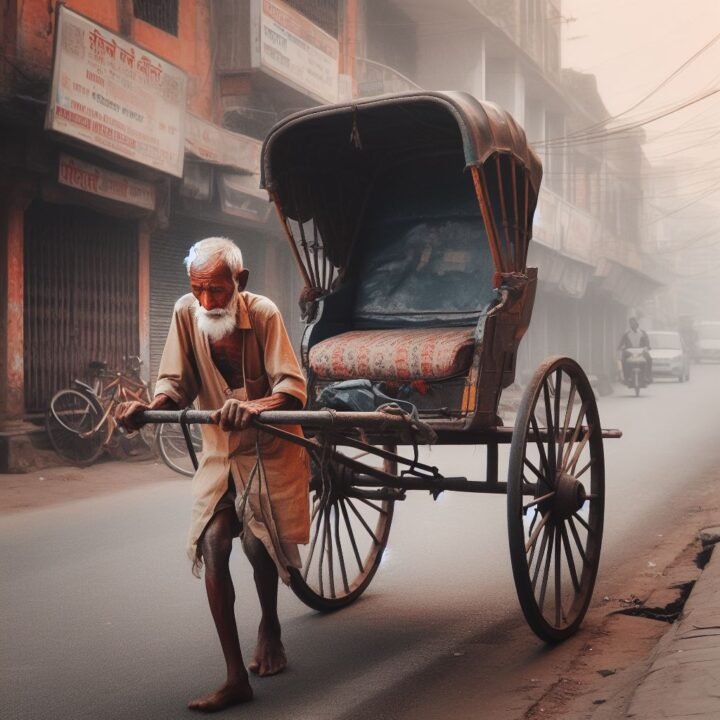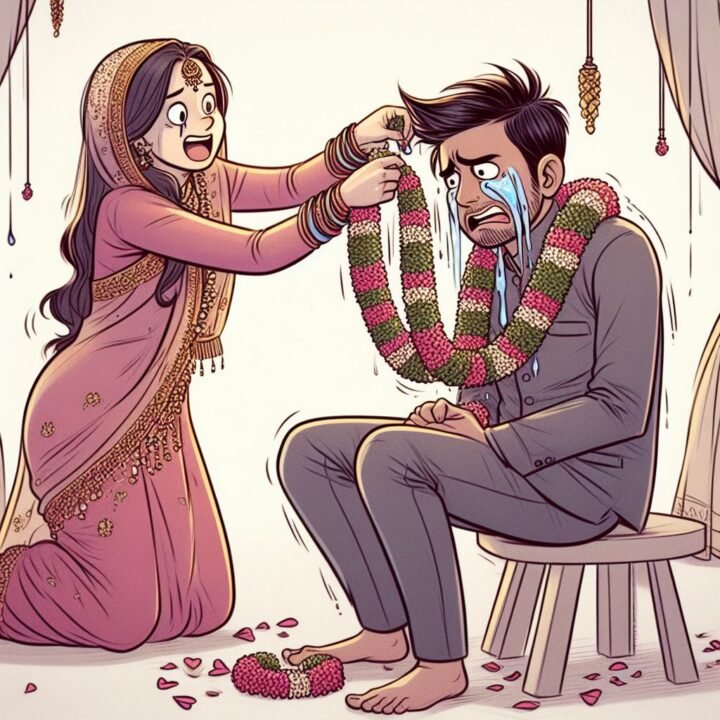In August 2021, as American troops hastily withdrew from Afghanistan, the country was plunged into chaos. The sudden departure of the U.S. military left a power vacuum that the Taliban swiftly filled, bringing with them a regime of terror, especially for women. Almost overnight, the progress made in women’s rights over two decades unraveled. Women were forced out of public life, deprived of their jobs, and their education was halted. The streets, once filled with women pursuing careers and education, became hostile territories where fear reigned.
Under the Taliban’s rule, women faced unimaginable horrors. Reports surfaced of Taliban fighters committing widespread sexual assaults, kidnapping young girls, and raping them under the guise of enforcing moral codes like proper hijab. Women who ventured out without a male escort were abducted and subjected to brutal punishments. The so-called moral policing by Taliban-led authorities became an excuse for systemic abuse, with women bearing the brunt of these medieval practices.
This article will detail ten specific incidents that highlight the grim reality of women’s lives in Taliban-controlled Afghanistan, shedding light on the atrocities they endure daily.
1.
In early June 2024, the remote Tangi Shadan village in the Allahyar district of Ghor province was shaken by a tragic discovery. The bodies of a 45-year-old widow and her 7-year-old granddaughter were found after they had been missing for nearly two months. It is widely believed that they were murdered by individuals with ties to Mawlawi Jaber, the Taliban district governor, who likely sought to seize their property. When the grieving relatives sought justice and approached the local Taliban office, the governor callously questioned why the widow had been living without remarrying, further highlighting the brutality and disregard for women’s lives under Taliban rule.
Source– The Diplomat
2.
In mid-June 2024, Taliban Supreme Leader Hibatullah Akhundzada issued a decree that drastically cut the salaries of all female employees across both government and non-government sectors. Regardless of their job role, experience, or seniority, women’s wages were capped at a mere 5,000 Afghanis (approximately $70) per month, starting from June. This amount represents the lowest salary level within the Taliban’s governmental structure. The Taliban’s administrative office confirmed this discriminatory policy, which severely undermines women’s financial independence. In a country where securing employment is already a significant challenge, this policy exacerbates the issue of “working poverty,” where even those with jobs struggle to provide for their families.
Source– The Diplomat
3.
In an interview, Khorsheed, a 35-year-old woman from a central province of Afghanistan, recounted her experience to Amnesty International.
Due to the economic crisis, she was forced to marry off her 13-year-old daughter to a 30-year-old neighbor in September 2021 for a “bride price” of 60,000 Afghanis (approximately $670).
After the marriage, Khorsheed felt relieved, saying, “She won’t be hungry anymore.” However, she hesitated to marry off her 10-year-old daughter, hoping that she might one day provide for the family. Khorsheed shared her aspirations for this daughter, who had reached the fifth grade, hoping she could continue her education, learn English, and support the family. But she acknowledged that if schools remained closed, she would have no choice but to marry her off as well.
Source- AMNESTY
4.
Amnesty International’s investigation, based on interviews with 12 women who participated in protests following the Taliban’s takeover, reveals that many women protesters have faced arbitrary arrest, detention, enforced disappearance, and even torture.
One of these women, who took part in several peaceful protests, was arrested and detained for 10 days in 2022. She recounted her harrowing experience in detention, where Taliban guards repeatedly threatened her by showing her pictures of her family, warning that they could kill them all and she would be powerless to stop it. She was told, “After protesting, you should have expected days like this.”
During her detention, she endured severe beatings on two occasions. She described one particularly brutal encounter where a Taliban member, after hurling insults at her and blaming her for the country’s financial woes, kicked her with such force that she sustained injuries to her back and chin. The pain from the attack lingered, affecting her ability to speak.
Women detained by the Taliban reported inadequate access to basic necessities like food, water, ventilation, sanitary products, and medical care. To secure their release, they were coerced into signing agreements that neither they nor their family members would protest again or speak publicly about their experiences during detention.
Source- AMNESTY
5.
In July 2024, a disturbing incident drew global attention when The Guardian reported on the rape of a female human rights activist in Afghanistan, an act that was horrifyingly captured on video by the Taliban. The video shows armed Taliban members raping and torturing the woman, a clear attempt to silence her. After her release, the Taliban sent her the footage as a means of blackmail, threatening to expose the video if she spoke out. Despite these threats, the woman bravely escaped Afghanistan and shared the video with Afghan journalists, leading to its exposure by the British newspaper.
Source- DW.COM.
6.
Lilma Dawlatzai endured severe trauma during her imprisonment, although she was not raped, she faced brutal torture. Before the Taliban’s rise to power, she served as the head of the women’s council in the Chaharbulak district of Balkh province. After the fall of the pro-Western government, she went into hiding with friends.
However, the Taliban eventually found her. “I was captured and taken to prison, where they beat me and cut me with knives,” she told DW. “They even rubbed salt into my wounds.”
In order to secure her release, Dawlatzai made a deal with one of the Taliban members, giving up all of her property in Afghanistan. With his help, she managed to escape and is now living in Germany.
“The Taliban show no mercy,” Dawlatzai says. “They wouldn’t even allow me to wash my hands and face to pray after religious rituals. Prisoners are treated in any way they see fit.”
Source- DW.COM.
7.
In December 2023, the family of 16-year-old Zahra* reported that she and another teenage girl were arrested while in a shop in western Kabul. After being detained for two weeks, Zahra was finally released, but her mother, Somaia*, noticed a drastic change in her. Zahra, who had once been a lively girl, returned home in a state of deep despair. She broke down in tears, telling her mother, “I am dishonoured.” That day, Zahra neither ate nor spoke, instead isolating herself in a room and crying. Her mother, overwhelmed with concern, didn’t dare to ask her what had happened during those two weeks in detention.
Source- THE GUARDIAN.
8.
Amina*, a 22-year-old medical student, recounted her harrowing experience of spending three nights in a Taliban prison after her arrest in January 2024. During her interrogation, an older man subjected her to humiliating questions about her menstruation and marital status. Desperate, Amina begged him to kill her rather than harass her. In response, he made chilling remarks and began to sexually assault her. Amina fainted twice during the ordeal, only to be revived with cold water. She revealed that this horrific treatment was common for every girl taken into that interrogation room.
Now traumatized, Amina struggles with severe fear and sleepless nights, often fainting at the sight of Taliban soldiers. She has attempted suicide twice, unable to bear the memory of the assault. Tragically, Zahra*, who also suffered in Taliban custody, could not cope with the trauma and took her own life. Her mother, Somaia*, discovered Zahra had hanged herself in the middle of the night, unable to endure the pain any longer.
Source- THE GUARDIAN.
9.
In December 2023, a 23-year-old university student named Marina Sadat, from the same neighborhood, was reportedly arrested by the Taliban while on her way to the Farabi Institute of Health Sciences, where she was studying midwifery—one of the few educational opportunities available for women under Taliban rule. Twenty-two days later, her battered body was discovered inside a sack in a canal in Kabul’s Paghman district. Reports suggest that she had been sexually abused before her death. A source close to her family expressed the brutality of the situation, lamenting how a young girl left for university and instead, her lifeless body was returned home.
Source- THE GUARDIAN.
10.
When the Taliban took control of Afghanistan in 2021, Amina was just 14 years old and in the seventh grade. The militants soon imposed a ban on teenage girls attending school, shattering her hopes of continuing her education.
A few months later, Amina’s family, struggling with severe financial difficulties in the central province of Maidan Wardak, arranged for her to marry a 37-year-old local man. Amina, whose name has been changed for her protection, recalls feeling “traumatized and sick” upon learning of her family’s decision.
Her husband provided a “walwar,” a traditional premarital payment to the bride’s parents, amounting to approximately $12,000. This practice, common in Afghanistan, often incentivizes families to marry off their daughters at a young age.
Amina is one of thousands of underage girls forced into marriage following the collapse of the Western-backed Afghan government in August 2021.
Source- RFE/RL’s Radio Azadi.
The grim reality faced by women and girls under Taliban rule in Afghanistan demands urgent global attention. The world must acknowledge their suffering and work towards ensuring that these women and girls can one day enjoy the same freedoms and opportunities as those in more civilized, progressive societies. Only through collective action can we hope for a brighter future where Afghan women and girls are empowered to live with dignity and freedom.








